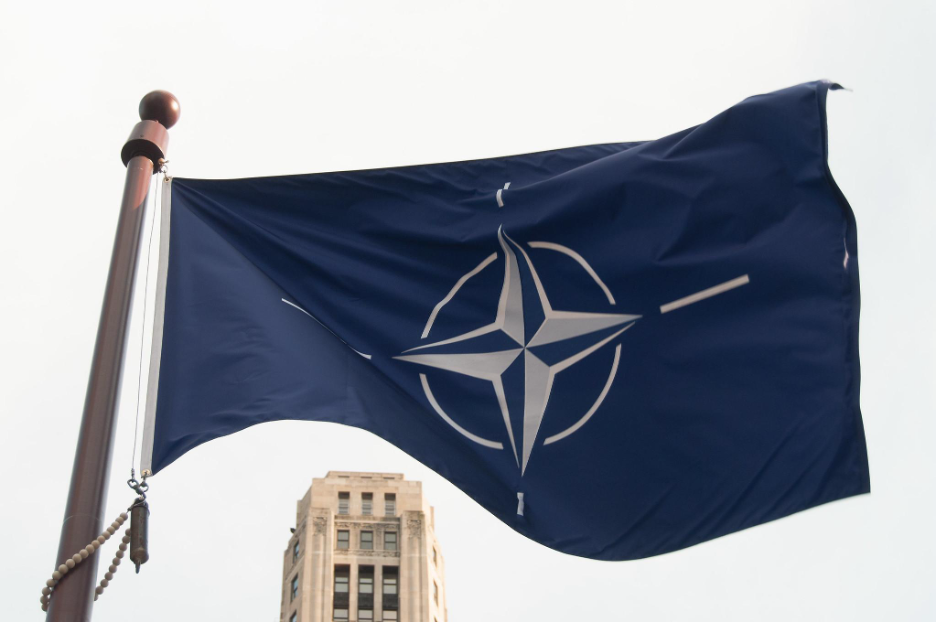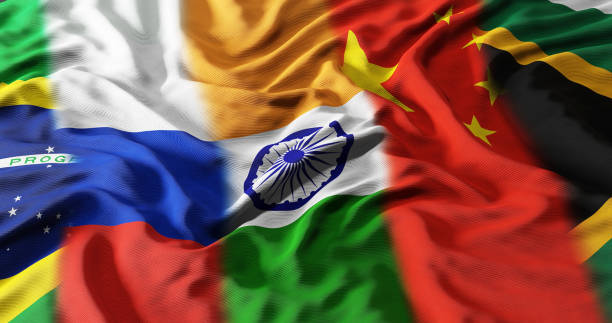
By Bianka Koka Stuit | April 5, 2024 | Photo Credit: Flicker
EVENT SUMMARY: As we mark the 75th anniversary of the North Atlantic Treaty Organization (NATO), we would do well to reflect on the strategic evolution of the Alliance and its capacity to adapt to evolving threats. These ideas were explored in a recent private event hosted by Young Professionals in Foreign Policy (YPFP) in January 2024 – “The Future of NATO & The Amplification of Youth Voices.”
The main takeaway: NATO is not just adapting to the changing world; it’s leading the charge. From bolstering defense capabilities to forging global partnerships, the Alliance continues to showcase its resilience and commitment to staying ahead of emerging threats.
Overview: This event brought together a diverse group of professionals from various fields, all sharing a deep expertise in NATO and transatlantic security-related issues. The discussion began with an overview of recent geopolitical upheavals, notably Russia’s invasion of Ukraine, which have spurred NATO to refocus on collective defense and security. Questions posed by participants centered on NATO’s strategies for addressing present global uncertainties and threats, probing deeply into the alliance’s envisioned path forward. There is high hope for NATO’s revitalization and expansion.
Key Takeaways
- NATO is fortifying European defense industries. Recent initiatives to enhance defense production include aligning planning requirements with industry capabilities to signal sustained demand. Multinational procurement initiatives, such as joint purchases of Patriot interceptors, bolster collective defense capabilities and incentivize industry responsiveness to NATO allies’ needs. However, as the United States urges European nations to enhance defense capacities and reduce reliance on American support, concerns within NATO exist over potential duplication of efforts and divergence in strategic priorities. Tensions also simmer over questions of sovereignty and spending, riddling the path forward with contradictions and complexities.
- U.S. support for the Ukraine war has stalled, but NATO is committed to footing the bill. While funding impasses persist in the U.S. Congress, NATO’s Ukraine Defense Contact Group is coordinating security assistance efforts and ensuring that aid reaches Ukraine via Poland. While the delay in congressional funding is concerning, NATO allies are not waiting idly for U.S. action. European countries have stepped up their support for Ukraine, with Germany and the Netherlands announcing significant increases in assistance and the European Council increasing the financial ceiling of the European Peace Facility (EPF).
- NATO continues to posture itself to confront unconventional threats and challenges. The Alliance is preemptively developing strategies and policies to counter emerging threats and remain ahead of the curve, readying itself for various scenarios, including conventional military conflicts and hybrid threats such as economic coercion, cyber-attacks, and disinformation campaigns by key adversaries. Engaging younger generations and international partners is a persistent challenge alongside the evolving threat landscape. There is a shift in how young generations, particularly millennials and Gen Z, tend to consume news. This presents a formidable obstacle that requires NATO to expand outreach efforts beyond traditional channels. The Alliance addresses this challenge through initiatives such as the Protect the Future program. Additionally, European officials have recently been extending their visits to the United States with stops outside D.C., engaging directly with diverse American communities to highlight NATO’s relevance.
- Transitioning from assessment to action requires concerted effort. NATO endeavors to enhance baseline knowledge and consensus on emerging threats, shifting from awareness-raising to formulating actionable strategies, leveraging the diverse expertise and resources across its member states through dialogue, crafting policies (such as those on human trafficking and the protection of children in armed conflicts), and implementing initiatives (like the CORE-24 M exercise in Moldova) to collectively address these pressing issues, particularly in response to the strategic implications of the PRC’s activities.
- Working with government actors beyond traditional defense ministries is a must. Coordinating with ministries of foreign affairs, intelligence agencies, and cybersecurity-focused commands will lead to a much-needed whole-of-government and whole-of-society approach to European security. NATO remains optimistic, aiming to leverage collective expertise and resources to navigate these complexities through a multifaceted strategy that prioritizes partnerships, open dialogue, and strategic engagement with countries and organizations worldwide.
Author’s Take
Despite NATO’s progress in enhancing European defense capabilities and fostering cooperation on regional security challenges, issues with Turkey, Cyprus, and the Berlin Plus agreement are stark reminders of the hurdles that lie ahead. Still, greater convergence of efforts between member states offers grounds for cautious optimism, most evident in increased defense spending and collaborative endeavors in conflict zones like Ukraine and the Balkans.
Perhaps the most significant challenge lies in Europe’s dependence on U.S. support to counter Russia. This reliance adds complexity to NATO’s strategic decisions and highlights the importance of transatlantic cooperation in shaping conflict dynamics. Nevertheless, the Alliance remains steadfast in its commitment to solidarity, unity, and cohesion (just look how quickly Finland and Sweden jumped onboard).
It is imperative that the Alliance confront these issues proactively and head-on, specifically by accelerating its digital transformation, fostering innovation, combating climate change, and strengthening its role in arms control and nonproliferation efforts. These endeavors are paramount for safeguarding global security in an ever-changing landscape.
Bianka Koka Stuit is the Deputy Director of Communications at YPFP. Prior to this role, she worked as a Parliamentary Assistant in the European Parliament, and most recently, at the Center for European Progression in Brussels. Bianka speaks English, Hungarian, Italian and French. Follow her on LinkedIn.


